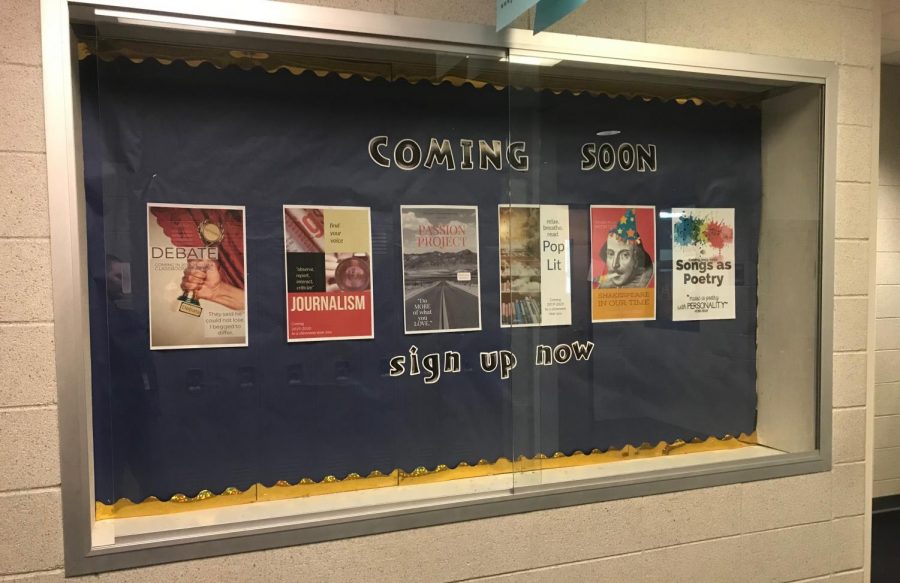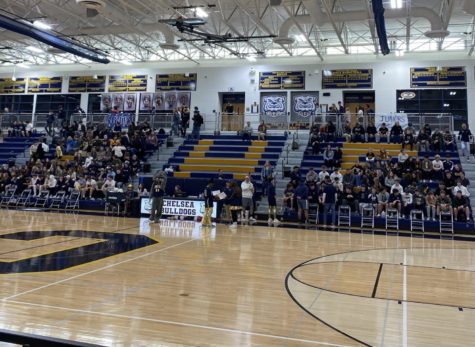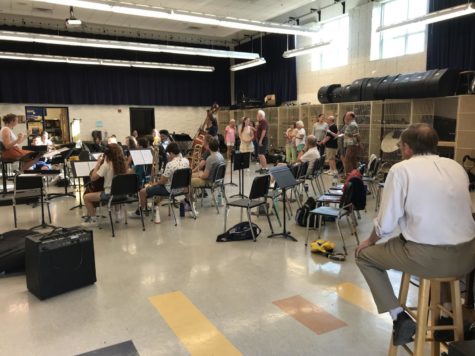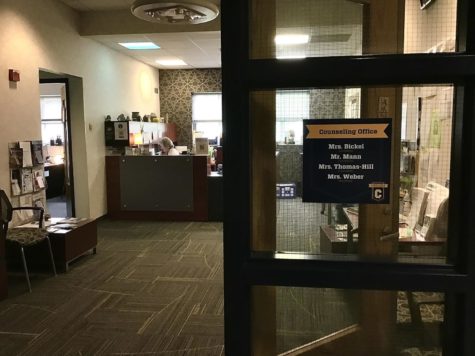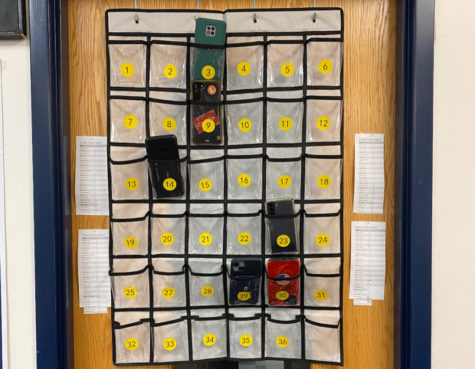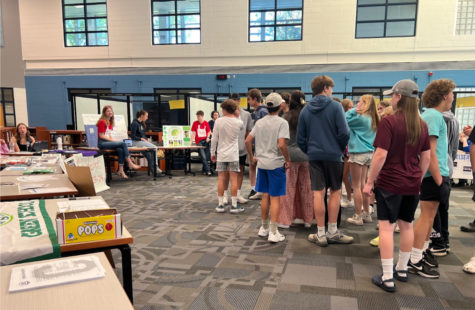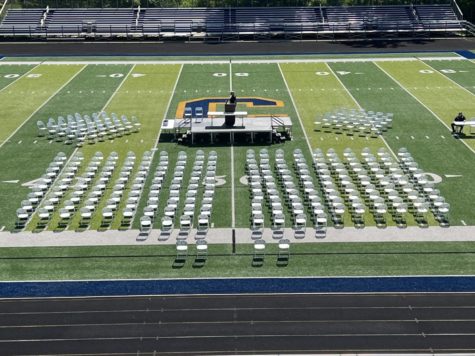New Electives Planned for the 2019-2020 School Year
For the coming school year, there are many new and improved elective classes for students to enroll in.
These classes include Shakespeare In Our Times, World Language and Culture, Journalism, Passion Project, Songs as Poetry, and Debate.
Shakespeare In Our Times
The Shakespeare In Our Times class will be offered to sophomores through seniors who are interested in learning about and discussing Shakespeare’s works and their themes and commentaries. The class is for all grade levels except freshman to ensure everyone signing up for this class gets a chance to have had an experience with Shakespeare’s Romeo and Juliet in freshman English before they decide if they want to dig deeper into Shakespeare.
This class can count as an English credit and will be co-taught by Mr. Schilt and Mr. Zainea, two different English teachers at CHS. 40 students are needed to sign up before the class can run. Mr. Schilt explained that this class is his and Mr. Zania’s “brainchild,” and that they came up with this idea as a way to allow students to get excited about Shakespeare.
“People don’t really think about Shakespeare as being something joyful to do and be excited [about],” Schilt said. “Most students that go through our [English] curriculum only do three Shakespeare plays, and so we want to be sure that we are giving students the opportunity to explore Shakespeare.”
This class will take place in the auditorium or a similar place where many students can comfortably analyze, discuss, and act out parts of Shakespeare’s plays and writings. Mr. Schilt explained that the class will be a different experience than typical Shakespeare in English classes, and that it will focus more on how Shakespeare portrays his story and his ideas instead of what’s going on and knowing how to write about it.
“The class will be more focused on looking at social issues and how Shakespeare used language and how Shakespeare used the stage to both reflect society and also comment on society,” he said. “I think that students will be surprised at how ahead of his time that Shakespeare was in a lot of different ways and I am excited to have a really rigorous class where the readings are really hard but the work isn’t as rigorous as a core class would be…[Not that the work won’t be rigorous], but the work will be rigorous but in a different way. It’s not like you’re being judged on every little piece of writing you do. It’s not about being a great writer but it’s about honing the thinking skills and social commentary skills that we are more focused on.”
World Language and Culture
Another new class offered next year is World Language and Culture. It will be a project-based learning class for students of all grade levels with skill levels in world language from intermediate to advanced who are interested in exploring different world languages and cultures. It can be taken as both an elective and required world language credit for one or two trimesters depending on the number of people who sign up.
The class will be taught by one of the foreign language teachers at CHS. Señor Rodriguez is a Spanish teacher who helped come up with the idea for this class during the curriculum review process. He explained that the class is very flexible because it can be adjusted so that students with varying skill levels in language, culture, and investigation can help choose what they learn in the class.
“The course is designed to have a ton of flexibility,” Rodriguez said. “It could be for students that just want to learn a little bit about culture and have that be part of their world language requirement, but it has flexibility for people who are maybe taking Spanish 3, Spanish 4, French 3, or French 4 and want to have some more world language experience and be able to practice with a world language instructor, but it fits better in your schedule.”
This class is different than other world language classes because, while it is a good opportunity to practice your world language skills, the course focuses more on the “world” aspect of world language. The class looks more at different cultures and languages around the world rather than honing in on one specific target language.
“I’m really excited about being able to focus on all the different things that make cultures unique and how that impacts each person individually and how learning about other cultures can help you be an awesome person in the future,” Rodriguez said. “Sign up for the world language and culture course. It’s a great way to have some flexibility, get more world language credit, and also practice Spanish or French in the future.”
Journalism
This is a class that is already offered here at CHS and is currently taught by Mr. Schilt. This year, and in years past, its main focus has been on written news and our school newspaper, The Bleu Print. However, next year the class will be a collaboration between Mr. Schilt and Mrs. Woodruff, and students will have the option to not only write for Bleu Print, but also work on our yearbook, The Barker, and learn about photojournalism.
Students who would like to write for Bleu Print and/or The Barker but cannot fit this class into their busy schedule can still participate in the clubs to improve and use their news skills. However, they are highly encouraged to take this class because they will have more time to work and have more time to learn and improve their journalistic skills.
“We really want to encourage students to enroll in the class because one thing we [as a school paper and yearbook] have been running up against is that students are really passionate about those publications, but don’t necessarily have the skill set. So, we have to teach that in the club format when it’s a lot easier to teach it in the class format and do it as part of the course,” Mr. Schilt said.
Students of all grade levels can take this class for as many trimesters as they would like and when enrolling can choose Journalism A, B, or C based on which trimester they would like to have the class.
“Regardless of which trimester you take the class, there will be opportunities for leadership and editor roles and all students at one point or another will be focusing on writing for The Bleu Print or writing for The Barker,” Mr. Schilt said.
Unlike how Journalism is available every year, some English electives only take place every other year. This is because there are so many different options, and there isn’t always enough people signed up to run all or many of the classes. The idea is if people want English electives, they can pick from classes offered every other year so that enough people are enrolled that it can become a regularly occurring class.
The English electives that are like this and will be offered in the 2019-2020 school year are Shakespeare in Our Times, Passion Project, Songs as Poetry, and Debate. Mrs. Putnam, the head of the English Department, said that because not all of the classes are not set in stone, any of the English teachers could end up teaching them (except for Shakespeare in Our Times and Journalism). She also explained that they do this so that students can get the classes they want and need.
“There are pros and cons to it, but I think our schedule is mainly student driven and then we try and make it work based on what students sign up for. I think a lot of times other schools are school driven and students have to make it work,” she said.
Passion Project
This is a class where students get to chose something they want to do and make it happen. It is similar to the type of thing students who went to Beach Middle School as eighth graders did with their passion projects.
“Passion Project is if you don’t like working in small groups, and you don’t like doing things that teachers tell you to do, and you’ve always dreamed of something like ‘I wish I could make an English class and I would do it like this,’ and ‘we should study this and I would do this,’ that’s your class. You get to do it yourself,” Putnam said.
Songs as Poetry
Songs as Poetry is a class that takes a different angle on music. It brings out the lyrics part in music.
“I think it is really great for artistic kids, as in music kids,” Putnam said. “There are so many people like that I think that it’s a good fit for our school to run a class like Songs as Poetry, because it’s bringing English and music together so people can see that intersection of how these two things play off each other. It’s a literary class but it’s a different lens.”
She explained this class is a good way to get a look at and practice poetry with music in a way that doesn’t have the “geeky” connotation that poetry can sometimes bring with it.
“I think there are a lot of people who aren’t in music classes but just love music,” she explained. “You see people walking around with their earbuds in all the time. They might not necessarily love poetry, but they love music. It’s just looking at it a little bit differently and I think there are quite a few people that are secret poetry lovers. Maybe they write poetry but they don’t tell people so it’s sort of a good class because it brings it out in the open in a way that people don’t think is odd.”
Debate
One more class that falls every other year and has changed quite a bit from how it originated is debate. Putnam explained that when the class was started years ago it was “very academic.. hardcore,” and only for seniors.
The class used to be in a debate league, go to debate tournaments, and frequently visit and debate with other schools. Putnam also said the team was very successful because it was filled with many upper-level thinking seniors, especially compared to other schools who debated with less experienced students of lower grade levels.
However due to lack of seniors, policy debate being the only type of debate being taught, and that students of more grade levels wanted and needed to learn to think like how students in the original the class used to, the class has changed over time.
“It shouldn’t be a class that’s just for your highest levels of thinkers,” Putnam said. “It should be a class where lots of kids can learn to think in that critical way.”
Putnam said one thing students do in class is research a famous person, alive or dead, and then get put into groups. The groups imagine they are in a hot air balloon and students have to argue and vote which famous person gets thrown out the balloon. Putnam said that this is one of many “hilarious and fun” activities students partake in in class, and she recommends debate to competitive people.
“If you are a competitive type of person, and you like to win things, and you don’t want discussion, you don’t like just to come to a deeper meaning, and you want to make people believe what you believe, then Debate is sort of your thing,” she said.
Scheduling can be difficult because so many classes are offered here at CHS and every year students only get to choose 15, many of them being core classes. There are many options for classes, both old and new, and students here have many opportunities to explore different subjects and fields.
“I think that it is really good that we have so many different electives because there really is something for everyone,” Putnam said. “It’s hard when we have new ones because people don’t really know what it is so they don’t know if that’s for them.”
However, with jam packed schedules filled with many AP, music, and required academic classes, it can be difficult to fit new classes into any schedule and students can easily forget that high school is a time to have fun, try out new things, and figure out what they are working toward and want to do with all they have learned when they leave here.
“I think that we think too small a lot of times,” Schilt said.”Like we have a small community and we have these classes that are electives that people kind of take because they need the credits or whatever —and I totally get that—but I feel like we’re really missing an opportunity at CHS for some people to find their niche, and to find their role to find what they are really good at and drive it. I want to encourage more students to really think about what they are passionate about and how they can find a class they are actually excited to study for and excited about that they’ll maybe even use in a future career or find a passion that they pursue for the rest of their life.”
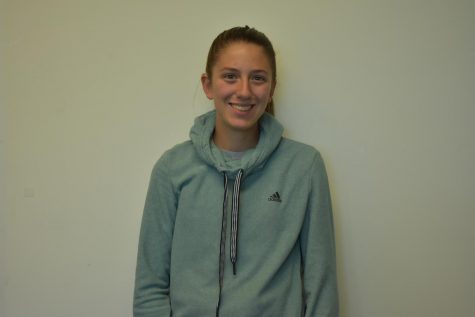
Natalie Davies is a senior at Chelsea High School. This is her third year with the Bleu Print. Outside of writing and editing, she enjoys running, reading,...

